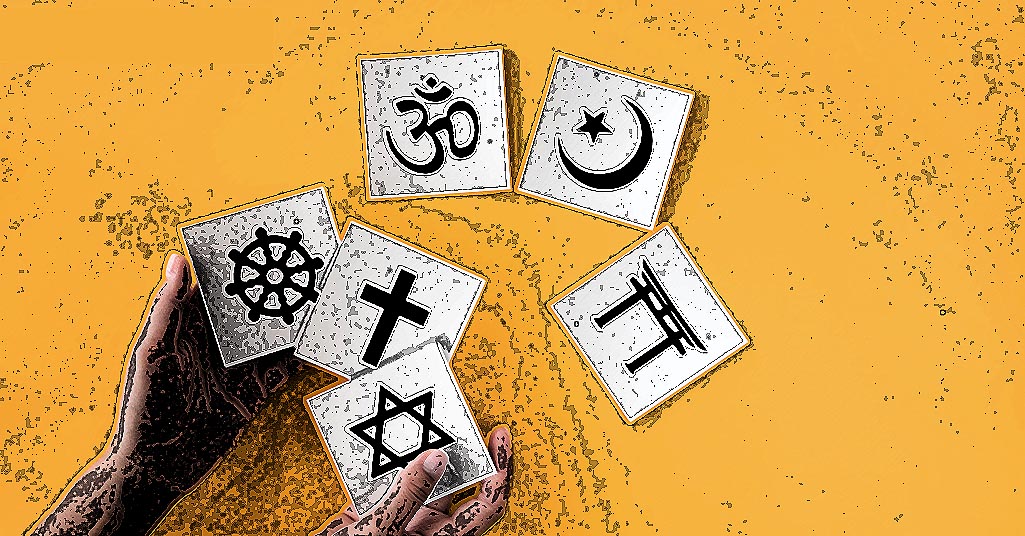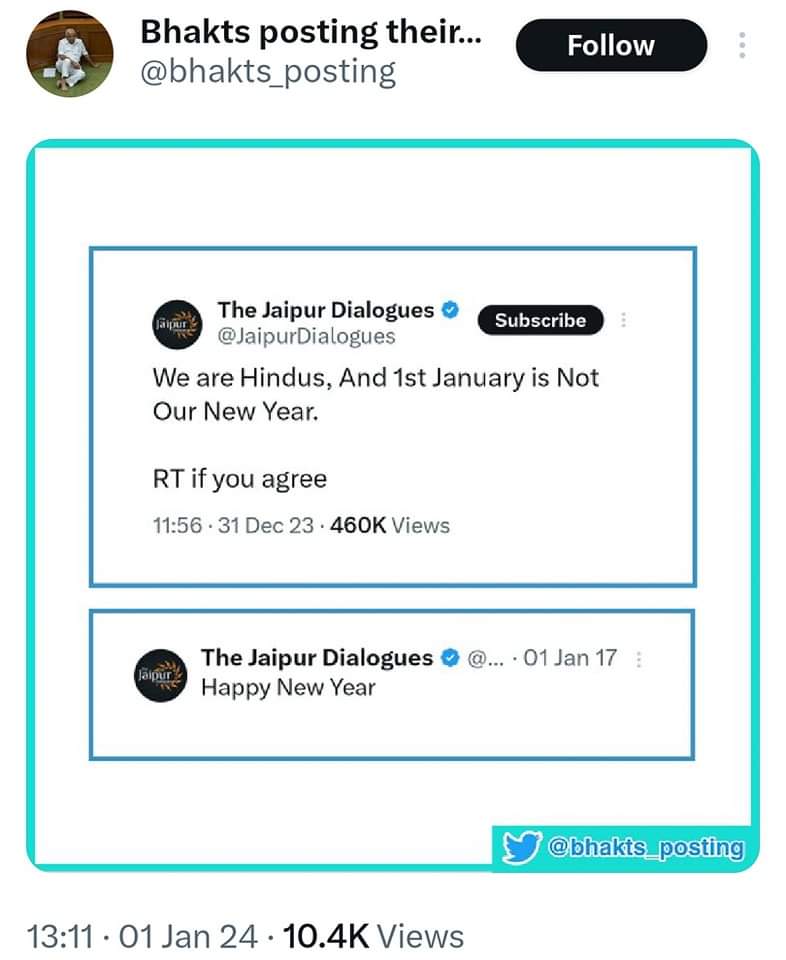In an era marked by unprecedented access to information through the internet and social media, hate has transcended geographical and religious boundaries and in turn has led to the fine balance of communal harmony and peace on a global scale being shaken to bits.
A disconcerting trend emerging has been noticed in conservative religious groups across India as they give a call against the celebration of New Year and Christmas, citing cultural heritage and religious traditions. This phenomenon is particularly evident in India, where the fear of Hindutva propaganda influencing Indian-origin communities abroad has sparked concerns. Instances of Hinduphobia and attacks on Hindu temples and Sikh Gurdwaras are on the rise in several countries, suggesting a potential “action-reaction” dynamic at play. This has also been seen by Muslim religious figures who have given similar calls to their followers to not partake in these celebrations given that they may have ‘pagan’ and ‘western’ origins.
Thus, the changing landscape of India and the world, with a shifting political and cultural climate, has given rise to a peculiar form of intolerance. Communities that once happily celebrated events like New Years and Christmases together are now witnessing a surge in misinformation campaigns against these very celebrations, as seen in a tweet from the Jaipur Dialogues. Furthermore, they are deterred from participating in these festivals which may include people from all religious groups and thus may be a site for potential cross-community interaction.
However, these moves by conservative and right-wing groups are not new. For instance, another notable example of this trend is the Hindu Dharma Parirakshana Trust of the Andhra Pradesh Endowments department in 2017 issued a notice advising temple authorities to refrain from New Year celebrations, welcome banners, and floral decorations on January 1. The department justified its stance by claiming that celebrating the Western New Year is not in accordance with Hindu traditions, thereby urging temples to focus on festivities during Ugadi, the Telugu New Year.
Similarly, in Aligarh in 2017, schools were warned against celebrating Christmas, with concerns raised by the Hindu Jagran Manch, a right-wing Hindutva group affiliated with Yogi Adityanath’s Hindu Yuva Vahini. The group suggested that Christmas celebrations might lead to ‘forced conversion’ of Hindu students, showcasing a fear-driven narrative against religious minorities. The Hindu Janajagruti Samiti, another conservative group, had appealed to Hindus nationwide to celebrate the New Year only on Chaitra Shuddha Pratipada (Gudhipadwa), rejecting the celebration on January 1 due to its perceived lack of historical, natural, and spiritual significance. Further, in December 2023, a school in Madhya Pradesh specified that students need written permission from their parents before they could participate in Christmas Day celebrations in school.
In late November 2023, the Janajati Dharma Sanskriti Suraksha Manch (JSM) had plans to organise a rally on December 25 in Agartala, the capital of Tripura in northeast India, as reported by UCA News.
Functioning as an affiliate of the pro-Hindutva and supremacist Rashtriya Swayamsevak Sangh (RSS), the JSM advocates for the exclusion of Christianity and Islam, which it deems as “foreign-origin religions.” The organisation argues that indigenous tribal individuals who have converted to these faiths should be omitted from the official Scheduled Tribes list. This exclusion would result in the denial of educational and employment quotas, along with other welfare benefits, as part of India’s affirmative action programs.
In 2022, notorious for reportedly engaging in hate speech against religious minorities in India, Suresh Chavhanke stated that Christmas is an “imposition of the 2 % over the 98%.” The Sudarshan News Editor-in-Chief was speaking at an event held by the Hindu Janajagruti Samiti in Jalgaon, Maharashtra on December 25. Furthermore, expressing anxiety about the prospect of “mass Hindu conversions,” he stated, Christianity has ruined “our intellect,” and further stated that, “The Hindus are so gullible that they are putting up Christmas trees in hotels, malls, airports. Is there any relation of Christmas trees and India? (Crowd echoes a ‘No’) But we were made into fools. From December 25 to January 5, we will not see anything else. Our children will grow up looking at Christmas tree and they will think is ours and that is why Sudarshan (his news channel) since the past 10-12 years has started worshipping the tulsi plant instead of worshipping the Christmas tree.”
Similar sentiments were echoed by Hindutva outfits over the celebration of Eid, as elaborated in a detailed piece by Sabrang India, which detailed the “anxiety ‘ Hindutva has with regards to celebration of Eid. The article details several instances where people celebrating Eid were disrupted, including one celebration in a school which was disrupted by Hindutva supporters. The article also notes that the police was seen chatting in an amicable manner at the scene of crime in the school with the attackers from the Hindutva outfits had disrupted the programme.
Other religious groups such as Muslims too have raised concerns about celebrating festivals that are not from their own religion. For instance, in December 2023, a Sunni cleric named Sadiq Ali from Kerala wrote a Facebook post decrying the celebration of Christmas by Muslims. This post came after members of the IUML (Indian Union Muslim League) engaged in Christmas celebrations. He further sought to cement his claims and argued, “It is wrong to take part in certain celebrations. Participating in certain other festivals would lead you out of Islam. This is clearly stated in the books on Islamic jurisprudence.” However, he further added, “Islam teaches us to be tolerant and to establish good relationships with people of other faiths. Islam teaches that if a goat is slaughtered in your house, the first share should be given to the neighbouring Jew.” Furthermore, these incidents raise questions about the broader implications for communal harmony and diversity by arbiters and advocates of religious conservatism.
This growing intolerance is not limited to India alone. Similar instances of conservative religious groups opposing New Year and Christmas celebrations can be found globally. In Saudi Arabia, religious kingdoms have successfully employed such tactics to maintain control and foster religious homogeneity. The underlying narrative appears to be one of religious fanaticism seeking reasons to polarise citizens, with calls for boycotting Christmas or condemning New Year seen as forms of hatred towards minority communities, especially Christians. Such incidents reflect a worrying trend where personal choices to celebrate certain occasions are not only discouraged but actively degraded.
Related:

